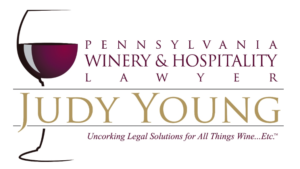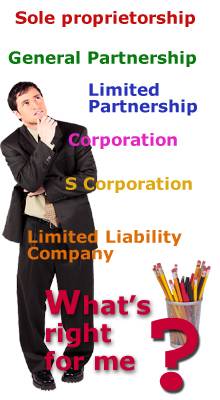Is That Wine Or Hospitality Business Partner Really Your Consultant?
Do you already own your own wine or hospitality business and now want to merge your business expertise with those of another? Have you contemplated a new business venture with another business person that you think offers promise for you both?
person that you think offers promise for you both?
Perhaps you’ve identified a potential business partner whose business combined with yours makes practical sense while bringing a new and different business synergy. Maybe you and your new found partner have sketched out a few ideas of what role each of you intends to play in your newly planned business venture.
Conceptually, you may have wisely given consideration to formally executing a written Partnership Agreement. But before proceeding too quickly, you may want to consider another option. Ask yourself, is a Partnership Agreement really what you need?
Maintaining your own business autonomy while still collaborating with your new business partner can be achieved with a different choice. You may want to consider creating a different kind of business marriage by executing a Consulting Agreement.
Let’s say for example, that you’re a wine sommelier. You offer wine knowledge and expertise to a wide range of hospitality and wine business clients for a fee. Your new potential business partner wants to open a new food and wine bar, but lacks your knowledge and expertise of the wine industry. Combined the two of you decide your backgrounds are complimentary and together you can maximize your business opportunities.
However, you may not want to create a business relationship wherein together you share in the profits and losses of the newly conceived food and wine bar. Yet, you want to lend your expertise to the business, get compensated for those efforts, but still maintain your own separate autonomy for your own existing business. In this instance, executing a Consulting Agreement may be the right choice for this kind of business relationship.
Executing a Consulting Agreement allows you to define your terms in advance while assuring the other person that you will provide services to them in a professional manner. In these type of agreements, the responsibilities of the Consultant are defined in writing, identifying the expected work to be performed, anticipated compensation and payment schedules, start and end dates of the work, termination and dispute resolutions for the planned business arrangement.
The Consulting Agreement can set forth whether the Consultant will work exclusively for a single client and in what markets or territories. The Consulting Agreement is also a good vehicle to use to determine whether you and the other party can have a happy business marriage without the financial investment risks that often comes with forming a partnership.
So, when that next proposal for a business marriage with another presents itself, consider whether your winery, wine, event planning or hospitality based business really needs a Partner or a Consultant.


 business circumstances.
business circumstances. Every business should have a plan. Too often, new business owners fail to commit their business goals and objectives to writing. Whether your dream is to start a winery, open a restaurant, buy a bed and breakfast, or to create your own wine based or hospitality business, you need a plan. A well thought out business plan helps you to determine where you see your business headed in the future.
Every business should have a plan. Too often, new business owners fail to commit their business goals and objectives to writing. Whether your dream is to start a winery, open a restaurant, buy a bed and breakfast, or to create your own wine based or hospitality business, you need a plan. A well thought out business plan helps you to determine where you see your business headed in the future. worker, friend or loved one, “let’s sink or swim together” ? If so, perhaps that idea or concept that you and another have been incubating over time is ready to take flight and evolve into a General Partnership. Whether you are considering pursuing a winery, restaurant, catering, event planning, bed and breakfast, wine based or hospitality business, the type of business structure you choose will be determinative of the potential tax and liability issues you will face. In my earlier posts in this series, we discussed the
worker, friend or loved one, “let’s sink or swim together” ? If so, perhaps that idea or concept that you and another have been incubating over time is ready to take flight and evolve into a General Partnership. Whether you are considering pursuing a winery, restaurant, catering, event planning, bed and breakfast, wine based or hospitality business, the type of business structure you choose will be determinative of the potential tax and liability issues you will face. In my earlier posts in this series, we discussed the  to create the right business structure. Thus, I thought I would discuss the various business structures for those of you who are considering opening your own winery, restaurant, catering, event planning, bed and breakfast or hospitality business. The type of business structure you choose is determinative of the personal liability and tax consequences you will face. You will need to consider the amount of control you wish to have as well as your business exposure to lawsuits.
to create the right business structure. Thus, I thought I would discuss the various business structures for those of you who are considering opening your own winery, restaurant, catering, event planning, bed and breakfast or hospitality business. The type of business structure you choose is determinative of the personal liability and tax consequences you will face. You will need to consider the amount of control you wish to have as well as your business exposure to lawsuits.